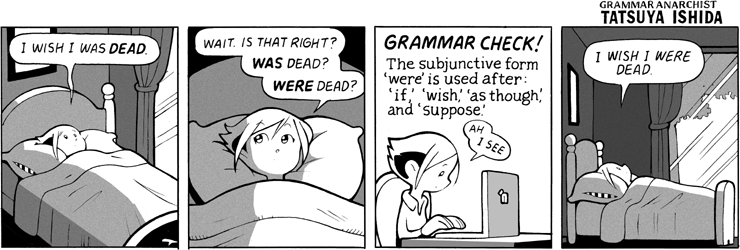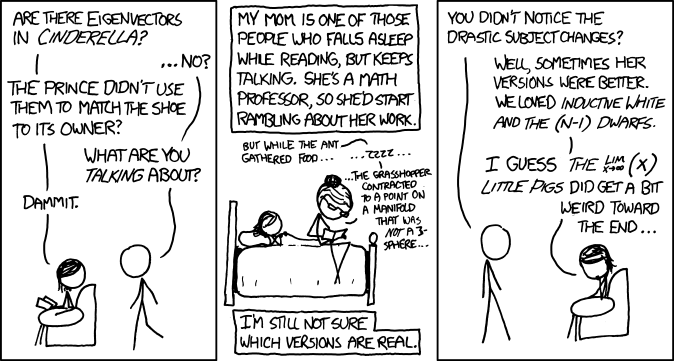Archive for March, 2011
Gitting it done
In a comment on "Pawlenty's linguistic southern strategy?", Jonathan Mayhew asked
Does anyone else hear him say "gitting the job done"? Is that a Southern thang?
Read the rest of this entry »
Lexical innovation, or retrogression?
I have in my hand a plastic bag that originally contained a CD and instruction manual for a Dell flat-panel display. As usual for such bags, it's printed with icons meant to discourage people from putting it over their head or using it as a baby pillow; and text that reads in English "WARNING: To avoid danger of suffocation, keep away from babies and children. Do not use in cribs, beds, carriages or playpens. This bag is not a toy."
The warning is repeated in French, German, Spanish, and Italian. The Italian one reads:
An Italian friend was taken aback by several aspects of this warning; and especially by the word "soffocazione". The trouble is, he told me, that this word doesn't exist. He doesn't mean that Italians have no way to express the concept of suffocation, just that they use a differently-derived word, namely "soffocamento".
Read the rest of this entry »
Pawlenty's linguistic "southern strategy"?
Tim Pawlenty's speech on March 7 to the Iowa Faith and Freedom Coalition suprised many observers, and not entirely in a good way. Dana Milbank, "With Pawlenty's Iowa speech, a side of syrup", Washington Post 3/9/2011, wrote
… Pawlenty is campaigning as if he's some sort of Southern preacher. At the Faith & Freedom event, he was dropping g's all over the place, using "ain't" instead of "isn't," and adding a syrup to his vowels not indigenous to Minnesota. He didn't utter the word "jobs," made only passing reference to economic woes, and instead gave the assembled religious conservatives a fiery speech about God, gays and gynecology.
Or Jeff Zeleny, "Campaigning as All Things to All Republicans", NYT 3/12/2011
The knock on Mr. Pawlenty, according to conversations with voters, is that his speeches sound sincere but do not always sizzle. At a faith forum last week in Iowa, he displayed vigor. But the next day at the Statehouse, the talk among several Republicans was that it seemed he had suddenly developed a Southern accent as he tried connecting to voters by speaking louder and with more energy.
The political blog of Radio Iowa heard it too and noted, “Pawlenty seems to be adopting a Southern accent as he talks about his record as governor.” As he spoke of the country’s challenges, he dropped the letter G, saying: “It ain’t gonna be easy. This is about plowin’ ahead and gettin’ the job done.”
Read the rest of this entry »
"No word for looting"?
Some of Andrew Sullivan's readers debunk the notion that "Japanese has no word for looting", as well as the claim that no looting has taken place following the recent disaster ("Why no looting in Japan? Ctd.", The Daily Dish, 3/17/2011).
Read the rest of this entry »
Arthrousness
On my blog, an inventory of postings (mostly from Language Log) on arthrousness, here, plus a fresh note on anarthrous U.S., here.
Permalink Comments off
Antedating tsunami
The OED's first citations for tsunami:
1897 L. Hearn Gleanings in Buddha-fields i. 24 ‘Tsunami!’ shrieked the people; and then all shrieks and all sounds and all power to hear sounds were annihilated by a nameless shock‥as the colossal swell smote the shore with a weight that sent a shudder through the hills.
1904 Publ. Earthquake Investigation Comm. Foreign Lang. (Japan) xix. 6 Records and reports of earthquakes and ‘tsunamis’.
On ADS-L a bit more than a year ago, there was a discussion of possible antedatings.
Read the rest of this entry »
Tsunami variation
Bill Poser's post on the English onset of (the word) tsunami provoked 99 comments so far, many of them of the form "I'm from X and I say Y". One of the things that we've learned in the past 50 years is that the "I say Y" part of such statements is almost always false.
Read the rest of this entry »
Trainspotting-like Voices in Chinese
I'm trying to imagine a novel such as Irvine Welsh's Trainspotting being written in Chinese. Trainspotting consists of a number of voices, all of them Scottish-accented in one way or another. It's difficult enough to write in unalloyed Pekingese, for example, much less several varieties of Pekingese or of other Sinitic topolects.
Read the rest of this entry »
Tsunami
The current disaster in Japan raises the question of the origin of the word tsunami. It is from Japanese 津波, where 波 [nami] is "wave" and 津 [tsu] here means "harbor". It was apparently first used in English in 1897 by Lafcadio Hearn in his Gleanings from Buddha Fields. The Japanese Wikipedia article contains a discussion of early English usage.
In English the word is pronounced [sunami] rather than [tsunami] since English does not allow syllable-initial [ts]. This is yet another example of insane English spelling practices and of the fact that they cannot be blamed entirely on the preservation of archaic spellings. The word could perfectly well have been borrowed into English as sunami. The person learning to write English must memorize the fact that this [s] is written <ts> for no reason at all. Note that the English spelling does not even have the virtue, whatever that might be, of preserving the Japanese spelling since Japanese is not written in Roman letters.
Qaddafi wrestles giant bear?
Several readers have sent me links to a recent headline: Anthony Shadid, "Qaddafi Forces Bear Down on Strategic Town as Rebels Flee", NYT 3/10/2011.

Read the rest of this entry »
Language nudges Art
Following up on Wednesday's Dinosaur comics post, Lera Boroditsky wrote:
Mark – Thanks for suggesting an important new research direction for my lab in your post yesterday. Grammatical sexual orientation markers are definitely the next frontier.
In exchange, I offer an essay by Jakobson, which is brilliant, and not just because it begins with a meditation on the meaning of cheese. We recently tested his claim that personification in art correlates with grammatical gender.
Read the rest of this entry »


